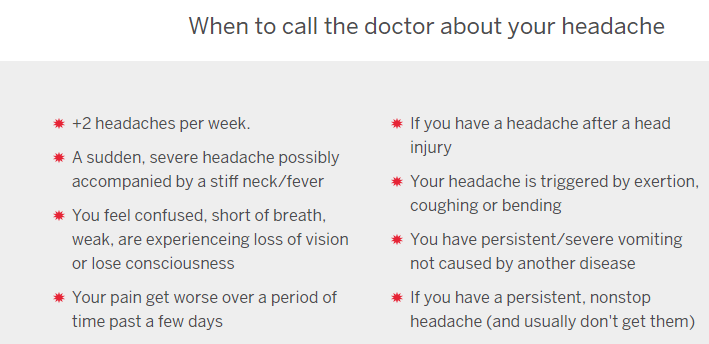Limit your use of the progressive tense
I’m not a fan of adding -ing to verbs, as I’ve said in “The ‘Be” test for writers.” However, I couldn’t tell you why it was wrong until I read Cut It Out: 10 Simple Steps for Tight Writing and Better Sentences by Laura Swart.
Using the progressive tense
Here’s how Swart explains the use of what she identifies as the “progressive tense.”
…unless something is happening right now or over a period of time, use the simple present and simple past tenses (typically verbs ending in s and ed, respectively).
There’s some ambiguity in how to apply that rule. That’s why I like that Swart’s book provides multiple examples of when to use or omit the progressive tense.
My progressive preference
However, I use a simpler rule. Does the sentence make sense if I don’t attach -ing to the verb? If so, I omit it. Shorter sentences are easier for readers to absorb.
Don’t confuse with gerunds
What appears to be the progressive tense may actually be a gerund. That’s a noun formed by adding -ing to a verb. Grammarbook uses the example of “Walking is great exercise.”
Grammarbook also says, “It is helpful to recognize gerunds because if a noun or pronoun precedes a gerund, it is usually best to use the possessive form of that noun or pronoun.”
Disclosure: If you click on an Amazon link in this post and then buy something, I will receive a small commission. I link only to books in which I find some value for my blog’s readers.
Don’t fix your grammar
Want to write well? Then, don’t fix your grammar. I don’t mean don’t ever fix your grammar. I mean that you shouldn’t fix your grammar too early in the writing process.
I thought about this when reading How to Write and Present Technical Information by Charles H. Sides. He says,
Often writers get overly concerned about the nit-picking details of grammar and punctuation in a document before they have got it written clearly.
Sides say this means we writers “will not change what we should, and the read will suffer for it.” In other words, the writer won’t fix big-picture errors of logic and organization.
I’m a big believer in starting the writing process by organizing your thoughts. That should be your top priority in the beginning. In the early stages, grammar is a distraction.
Here’s the process that I suggest:
- Organize your thoughts before you write.
- Write your first draft.
- Do “big picture” editing to fix the article’s organization and flow.
- Do line editing. This is the stage when you fix grammar and other writing style issues.
Of course, it’s easier said than done to leave grammar tweaks to the end. One way I prevent myself from tinkering too soon is by writing the first drafts of some blog posts by hand, as discussed in “No batteries required: My favorite blogging technique.”
If you like more help developing your writing process, read my book Financial Blogging: How to Write Powerful Posts That Attract Clients, or take my on-demand financial blogging class.
Disclosure: If you click on an Amazon link in this post and then buy something, I will receive a small commission. I link only to books in which I find some value for my blog’s readers.
Being right about grammar isn’t always good enough
If you want people to pay attention to your content, not your writing, then using correct grammar isn’t always enough. I could go on about readability and other factors. However, in this post, I want to focus on grammar.
Correct grammar can distract
Sometimes correct grammar that looks wrong will distract your readers from your content. That happened to me earlier this year. I sent out a newsletter that included the following line: “Their using my Twitter name—my @name, @susanweiner—forces their tweet to my attention.”
Two readers responded with gentle messages suggesting that my line included a grammatical mistake. Both said that “Their” should be “they’re.” If you delete the parenthetical reference to my Twitter name, you can see that’s not a solution. It results in a sentence that doesn’t make sense: “They’re using my Twitter name forces their tweet to my attention.” I suppose it could work if changed to “They’re using my Twitter name to force their tweet to my attention.”
I checked with some grammar-savvy friends. They said, “Their” is correct with the gerund form of “use.” That’s explained in “Using the Possessive Case with Gerunds.”
However, my readers who cared enough to contact me made an important point. The way that I’d written that sentence prevented some readers from focusing on my message. In other words, I was correct, but I’d failed to communicate effectively.
Alternative sentences
With the help of my friends, I came up with some alternative ways of saying the same thing. I ran a poll in my newsletter to see which version my readers preferred.
The winner, with 50% of the votes, was “By using my name—@susanweiner—they’re forcing me to notice their tweet.” It was followed by:
- “When they tag me on Twitter, using @susanweiner, they call my attention to their tweet” (28.6%)
- “Their use of my Twitter name—@susanweiner—forces their tweet to my attention” (14.3%)
- Other (7.1%)—for example, “When they tag me on Twitter, using @susanweiner, they’re forcing me to notice their tweet.”
- Don’t change the sentence (0%)
Ouch! Nobody preferred my original sentence. This is a good reminder for me to slow down when I write. Still, I’m not sure what technique or rule would have alerted me to the problem with this sentence. I need to reflect on this.
Another challenge: singular “they”
One respondent said, “The loser tweeter appears to be singular. If so, ‘their’ is wrong. Use the correct singular pronoun, or ‘he’ for neutral.” Of course, the problem with that is that “he” will offend some readers. And “his or her” is clunky.
“Their” is increasingly accepted as a gender-neutral singular possessive. Still, its use distracts people who were taught that “their” is strictly plural.
I often use the workaround that I describe in “Plurals: your best friend for gender-neutral financial writing ” However, in the context of my original blog post, the losers were plural, making “their” correct. (Of course, my commenter lacked the context, so he or she didn’t know that.)
Keep correcting me, please!
I appreciate all of my readers who correct me. Thank you!
You give me reason to reflect on my writing, and you often correct embarrassing mistakes. As a high schooler, I did not get a good education in correct grammar, as I discussed in “Confessions of a grammar ignoramus.” I still have a lot to learn.
Keep your comments coming!
MISTAKE MONDAY for Jul. 16: Can YOU spot what’s wrong?
Can you spot what’s wrong in the image below? Please post your answer as a comment. If you can’t find what’s wrong with this, then try my read-out-loud technique.
![]()
I post these challenges to raise awareness of the importance of proofreading.
MISTAKE MONDAY for June 25: Can YOU spot what’s wrong?
Can you spot what’s wrong in the Mistake Monday image below? Please post your answer as a comment.

I post these challenges to raise awareness of the importance of proofreading. However, I wonder if the author of this week’s item is a non-native speaker of English so this isn’t a proofreading problem. As a rusty, non-native speaker of Japanese, I sure would hate to be judged by the standards of native speakers.
Getting things as right as you can with a BuzzFeed copyeditor
“Getting Things As Right As You Can” is the title of a chapter in A world without whom, a book by Emmy J. Favilla, BuzzFeed’s global copy chief. As the book’s title suggests, Favilla disagrees with strict grammarians, especially if the support rules that are at odds with how people actually use language today. For example, one of her chapter subheadings uses the hashtag #banwhom.
Don’t worry about some rules
Favilla’s attitude may horrify some of my readers. She says there are matters of writing style that you shouldn’t lose sleep over. That doesn’t only mean skipping the use of “whom.” It means not obsessing over issues like “how to spell a word that has acceptable variations, whether to style abbreviations with or without periods, use of the serial comma, whether to capitalize or lowercase words of a certain length in titles, etc.”
I confess that I am a bit horrified because I get excited over some of the issues Favilla lists. On the other hand, I value clarity and conversational language over rules that undercut those values. I recognize that some “mistakes” are worse than others in their effect on your readers.
Do be consistent in your usage
Thank goodness, Favilla does believe that consistency is important. She says,
…it’s important to strive for consistency (across a publication, yes, but at the very least within a story), and there are certain things, like technical errors and typos, that may not necessarily diminish your credibility as one-off instances but, cumulatively considered, could make your work and the publication you represent look sloppy and careless. All of these things can lead to a lack of respect for stories you produce in the long run—or at least less than you have the potential to garner—because if you don’t care enough about the small things, how are you to be trusted with the bigger ones?
If you’re not a professional writer, I think “getting things as right as you can” and using a consistent style are good goals. You don’t need to drive yourself crazy to adhere to obscure rules. Making your content compelling, clear, and concise matters most.
Should you read this book?
This book is a fun read. I recommend it for writers who care about usage issues, even if you’re a grammar traditionalist.
Favilla offers insights into many of the classic questions of writing style. It also delves into many newer issues, such as language usage on social media.
Disclosure: If you click on an Amazon link in this post and then buy something, I will receive a small commission. I link only to books in which I find some value for my blog’s readers.
June 2018 update: I edited this post to fix a typo.
Only my latest grammar mistake
If only I had paid more attention to the rules of grammar, punctuation, and usage when I was younger, I wouldn’t make so many mistakes today. I feel embarrassed because some people look to me for guidance about how to write better. Oh well, my mistakes help me to feel empathy for everyone who makes mistakes.
My mistake
A reader gently pointed out a mistake I’ve been making for a long time. I’ve been misusing “only” in my affiliate disclosure. Here’s what I’ve been saying:
If you click on one of the Amazon links on this website and then buy something, I may receive a commission. I participate in the Amazon Services LLC Associates Program, an affiliate advertising program designed to provide a means for sites to earn advertising fees by advertising and linking to amazon.com. I only link to books in which I find some value.
I’ve been putting “only” in the wrong place. The way it’s written now, it emphasizes that I link but don’t do other things with books in which I find some value. (In an extreme case, could this be interpreted to mean that I don’t read books in which I find some value?).
Instead, the last sentence should say, “I link only to books in which I find some value.” This version emphasizes that if I link to a book, it means I find some value in it.
An editor friend suggested this alternative: “I provide links to books only when I believe they have value for my blog’s readers.” That could work, too.
Placement matters
The bottom line? Word placement matters. When using “only,” place it as close as possible to the word to which it refers. One tricky thing about placement is that “Additive/restrictive adverbs most often modify a word or phrase rather than an entire clause,” as discussed in Erin Brenner’s “Adverb Placement, Generally and Specifically” on the Visual Thesaurus website. For more on placement, read Grammar Girl’s “‘Only’: The Most Insidious Misplaced Modifier.”
I’m going to try to use “only” correctly in the future. But please forgive me if I don’t correct the gazillion examples of misplacement in this blog’s archives. I only have time to work on the new content.
MISTAKE MONDAY for March 26: Can YOU spot what’s wrong?
Can you spot what’s wrong in the image below? Please post your answer as a comment.

Want a clue to this week’s big mistake? Read my post on “Bloggers’ top two punctuation mistakes.” It doesn’t discuss this exact mistake, but it’ll point you in the right direction.
I post these challenges to raise awareness of the importance of proofreading. I make mistakes, too. Mistake Monday keeps me vigilant. After all, I don’t want to make any more mistakes worthy of posting here.



